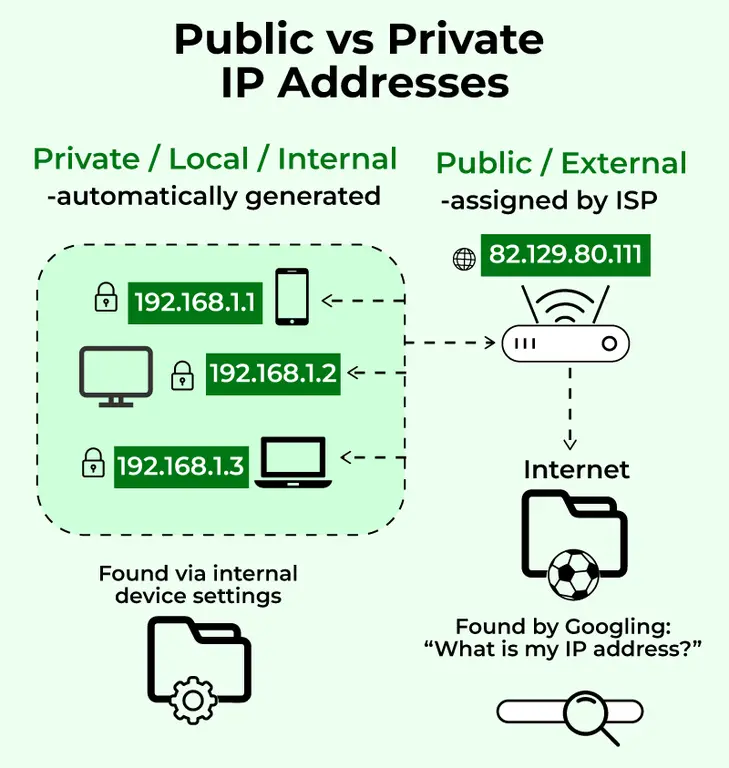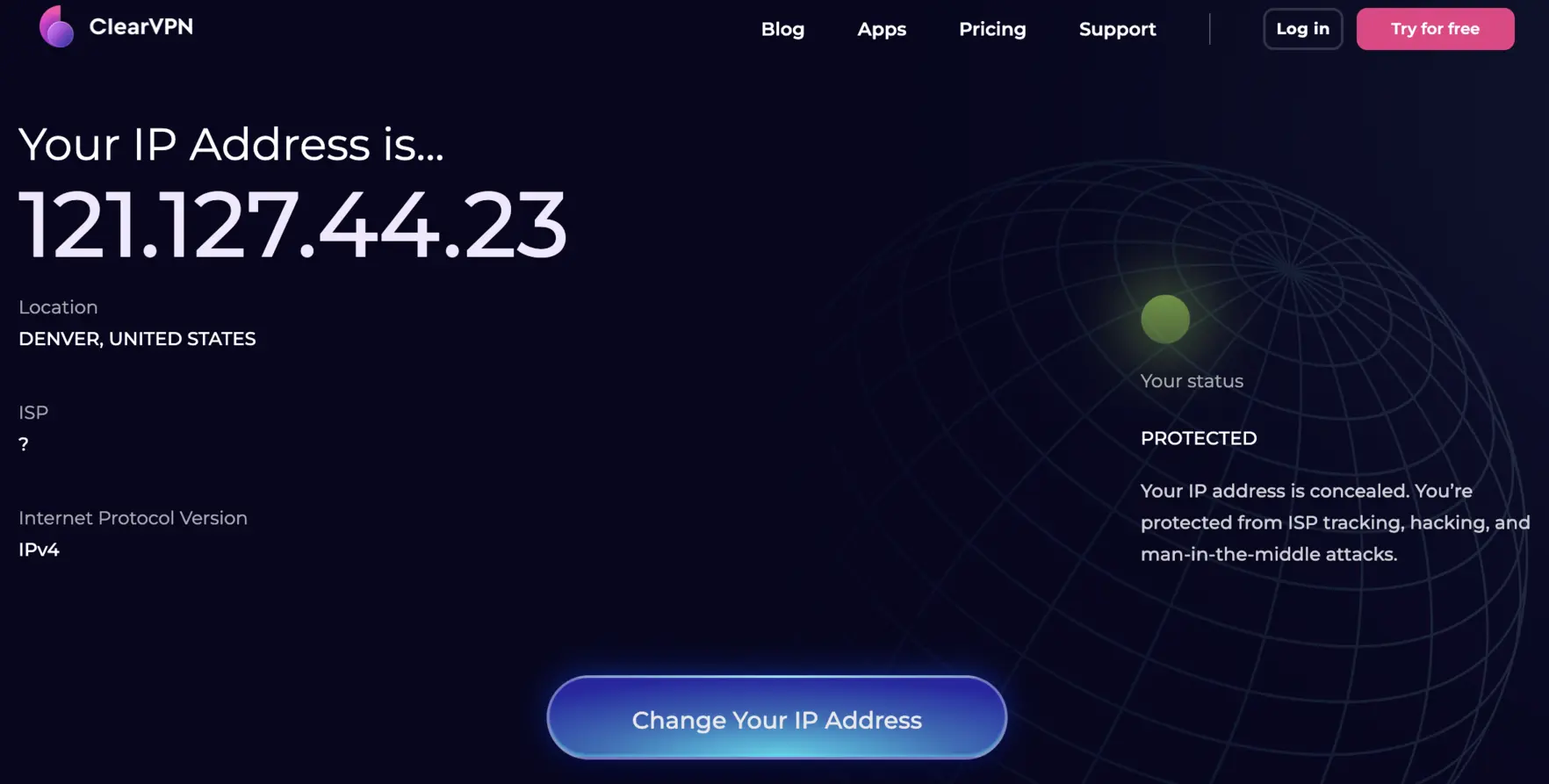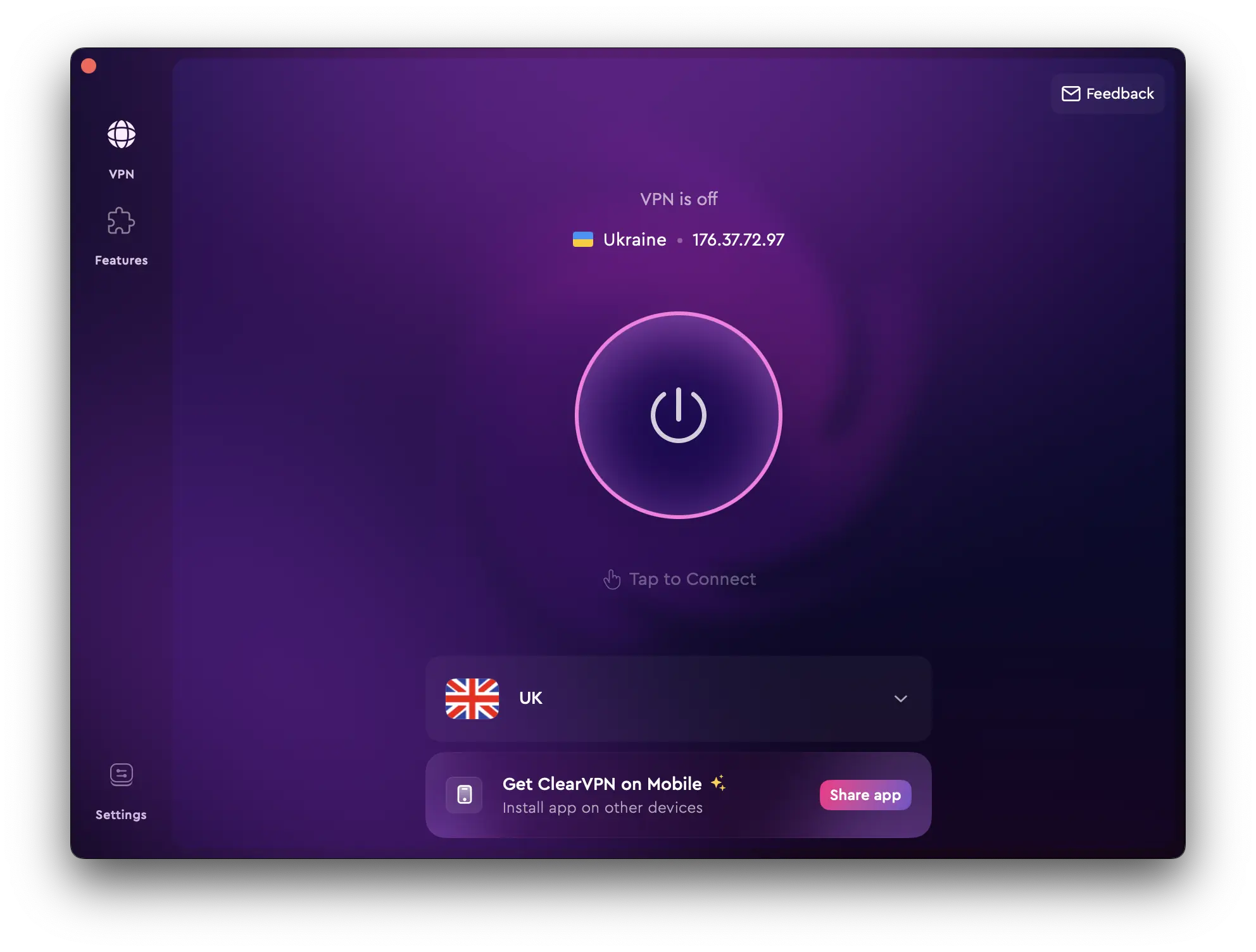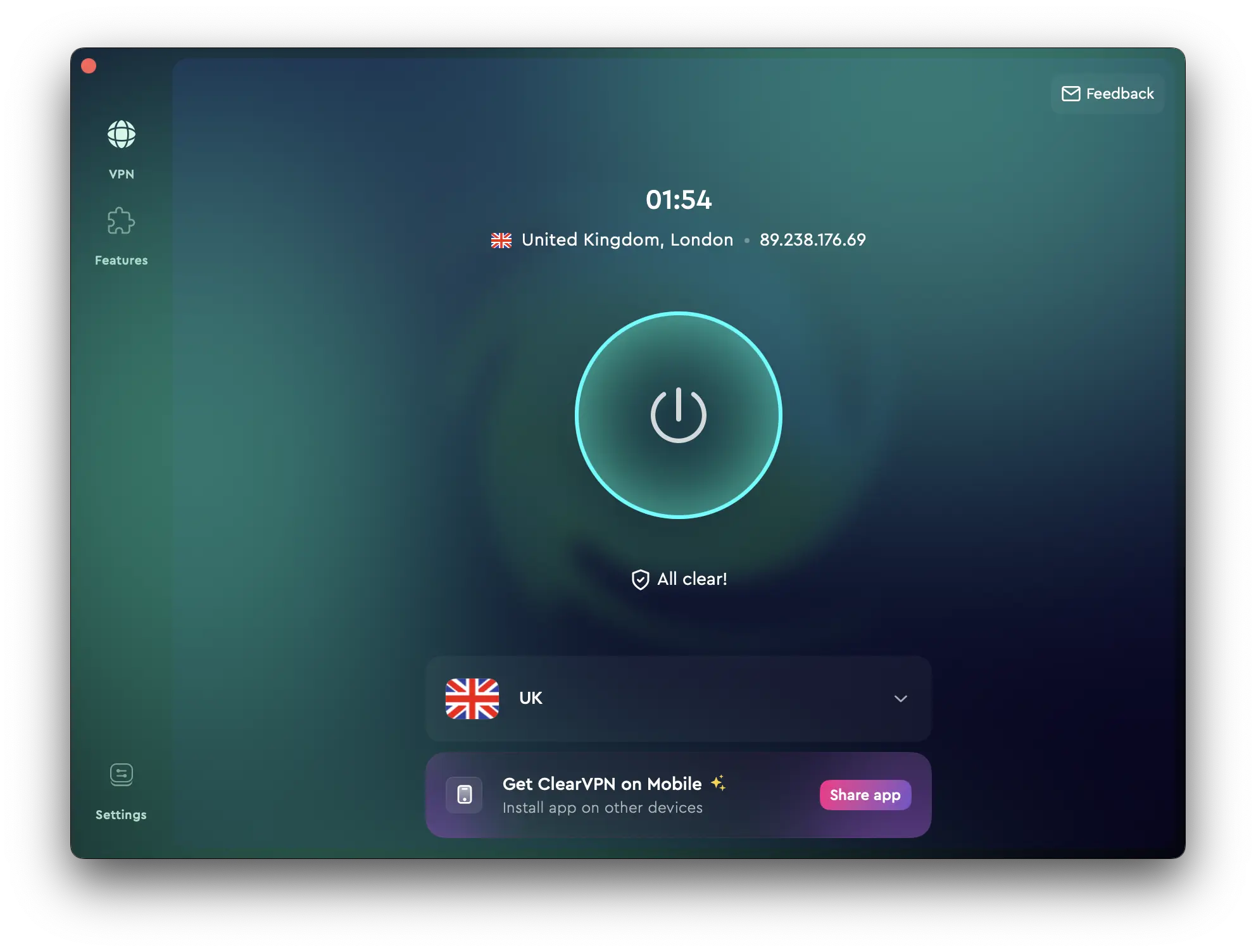When navigating the world of networks, understanding the difference between public and private IP address is essential for both individuals and businesses. IP addresses are the unique identifiers that enable devices to communicate over the internet. Yet not all IP addresses serve the same purpose.
In this quick guide, we will consider the key differences between public and private IP addresses and why they are important for your online presence. More importantly, we will discuss how you can leverage them to optimize and secure your network.
Let’s jump in!
What is a public IP address?
First things first — what exactly is a public IP address? A public IP address, also known as an external or global IP address, is a unique identifier assigned by your Internet Service Provider (ISP) to your network. This number allows devices on the internet to locate and communicate with your network.
Your public IP address is like the postal address of your home — it can be used to identify and send information to your network from anywhere around the world. Every device connected to the internet has a public IP address, whether it’s a smartphone, tablet, computer, or even IoT devices.
What is a private IP address?
Unlike public IP addresses, private IP addresses are assigned to devices within a private network. These networks can be home, office or corporate networks and are typically used for internal communications between connected devices. Private IP addresses cannot be accessed over the internet.
Think of your private IP address as the street address of your home — it is only relevant within your own neighborhood (private network) and cannot be used to communicate with someone outside of it.
Difference between public and private IP?
The main difference between public and private IP addresses is that public IP addresses are globally unique, while private IP addresses are unique within their own network. This means that no two devices can have the same public IP address on the internet, while it is possible for multiple devices to share a private IP address within a network.
Another key difference is that public IP addresses are accessible from anywhere in the world, while private IP addresses can only be accessed within their own network. This makes public IP addresses crucial for external communication over the internet, while private IP addresses facilitate internal communication within a network.
Why do we need both types of IP addresses?
Now that we’ve covered the basics of public IP vs private IP, you may wonder why we need both types in the first place. Well, simply put, they serve different purposes.
Public IP addresses enable devices to communicate with other networks and devices over the internet. This is essential for accessing websites, sending emails, and using various online services.
On the other hand, private IP addresses allow devices within a network to communicate with each other without external interference. This is common in home or office networks, where multiple devices need to connect and share data without being accessible over the internet.
Security implications of public and private IP addresses
Public and private IP addresses also have different security implications. Public IP addresses are more vulnerable to external threats, such as hackers or malicious attacks, as they can be accessed from anywhere on the internet.
Private IP addresses, on the other hand, are not accessible over the internet, making them less susceptible to outside threats. However, it is important to secure your network with firewalls and other security measures to protect against internal threats.
IP address class ranges
In addition to the differences between public and private IP addresses, different classes of IP addresses determine their range and how they are assigned. These include Classes A, B, C, D, and E.
Public IP range:
- Class A: 1.0.0.0 to 126.255.255.255
- Class B: 128.0.0.0 to 191.255.255.255
- Class C: 192.168.0.0 to 223.255.255.255
Private IP range:
- Class A: 10.0.0.0 to 10.255.255.255
- Class B: 172.16.0.0 to 172.31.255.255
- Class C: 192.168.0.0 to 192.168.255.255
The most commonly used class range for public IP addresses is Class C, while private IP addresses are often assigned within the Class A and B ranges. However, businesses may also opt for a private range within the Class C range to accommodate more devices (over 65 thousand possible unique IP addresses).
How to check if my IP address is public or private?
At this point, you might be wondering — why does it even matter if my IP address is public or private? After all, you’ve probably been using the internet for years without giving a second thought to your IP address.
Well, as it turns out, it can be useful to know which type of IP address you have. For example, if you’re experiencing issues with your network or internet connection, knowing whether you have a public or private IP address can help you troubleshoot the problem.
If your IP address is public, then it is likely that the issue lies with your ISP, or with external factors such as internet traffic. However, if you have a private IP address, then the problem may lie within your own network and may be resolved more easily by checking your router and network settings.
It’s also important to note that depending on how your network is set up, you may have both a public and private IP address. This is common in home networks, where your router assigns a private IP address to each connected device, while your internet service provider assigns you a public IP address for external communication.
To check if your IP address:
- Open your web browser and go to clearvpn.com/what-is-my-ip/.

- Your IP address will be displayed on the screen. By the IP number, you can easily determine whether is this a public or private IP.
- Check your device’s network settings on Windows PC. You can then go to “Network & Internet” settings and check the properties of your active network.
Next, it’s only a matter of comparing the two addresses to see if they are the same or different. If they are different, then your device has both a public and private IP address. If they’re the same, then your device only has one IP address, which is likely a private one.
You can further verify this by checking if it falls within the private ranges (10.0.0.0 to 10.255.255.255, 172.16.0.0 to 172.31.255.255, or 192.168.0.0 to 192.168.255.255). Any address outside these ranges is a public IP address.
How to change or hide your IP address
Now, there are a few reasons why you may want to change or hide your IP address. For example, if you’re experiencing internet connectivity issues or have been blocked from accessing certain websites due to your IP address, then changing it can help resolve the problem.
Another reason would be to protect your privacy and security online. By changing or hiding your IP address, you can prevent websites and services from tracking your activity and location.
So how exactly can you change your IP address? While private IP addresses can be easily changed by adjusting your network settings, changing a public IP address is not so simple. Since public IP addresses are assigned by your ISP and are globally unique, you cannot manually change it whenever you want.
Of course, you can just restart your modem or router to see if your ISP assigns you a new IP address. However, this is not guaranteed and may only work if your ISP has a dynamic IP address system in place.
How to change or hide your IP address with a VPN
A more reliable way to change your public IP address is by using a VPN.
A VPN allows you to connect to the internet through an encrypted tunnel, masking your real IP address with the one provided by the VPN server. This effectively changes your public IP address and adds an extra layer of security to your online activities.
Using a VPN is a simple process. There are no technical skills or equipment required. Here’s how you can do it with ClearVPN — a reliable and user-friendly premium VPN service for Windows, MacOS, Android, and iOS (iPhones and iPads).
- Download and install the ClearVPN app on your device. You can do that directly from the website, or through your device’s app store.
- Run the ClearVPN app and sign up for an account.
- Log in to your account — this will take you to the dashboard page.

- Simply click on the big purple button (quick connect) at the center of the screen to automatically connect to the best available VPN server.

Voila! You now have a new IP address and can enjoy faster, safer, and more private internet browsing. Note that you can also manually select a specific server location to change your IP address to a particular country or region. This can be useful for accessing geo-restricted content or services.
While the exact steps will vary depending on the VPN service you use, the general process remains the same.
FAQs
How to determine if an IP address is public or private?
To determine if an IP address is public or private, check if it falls within the private ranges (10.0.0.0 to 10.255.255.255, 172.16.0.0 to 172.31.255.255, or 192.168.0.0 to 192.168.255.255). Any address outside these ranges is a public IP address.
Is it safe to share your private IP address?
Generally, it is safe to share your private IP address within trusted networks, as it is used internally and not exposed to the internet. However, be cautious about sharing it publicly, as it can provide insights into your home network structure, potentially leading to security vulnerabilities.
Can someone see my private IP address?
Yes, someone within your local network can see your private IP address. However, individuals outside your network cannot access it unless there are specific vulnerabilities or if you share it intentionally. Always be cautious about sharing your private IP to maintain your network’s security.
Are public IP addresses secure?
Public IP addresses are not inherently secure since they are exposed to the internet. This exposure makes them potential targets for cyberattacks. To enhance security, you can employ firewalls, VPNs, and other protective measures to safeguard your network and devices.
